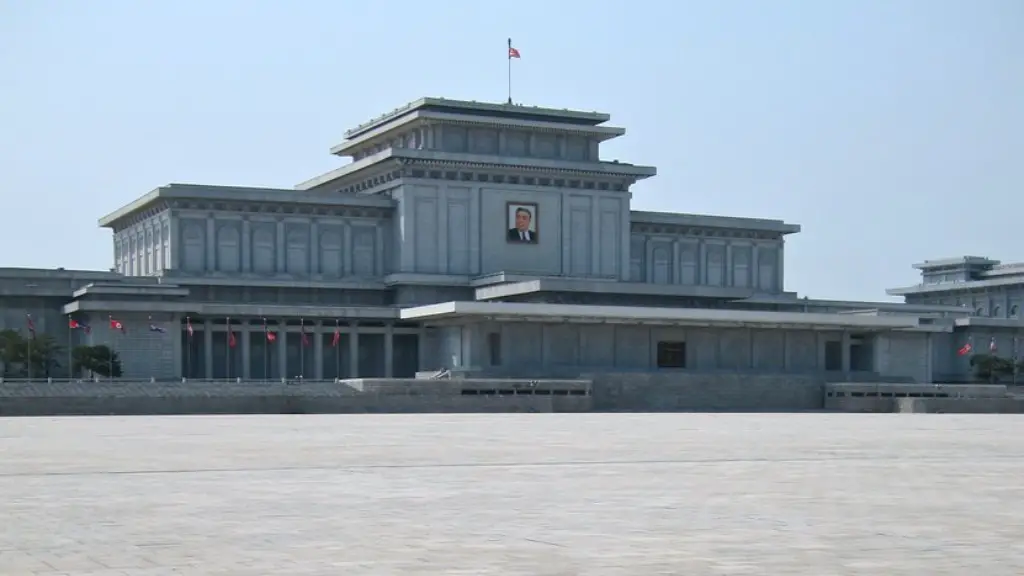The Impact Of North Korean Sanctions
North Korea’s continued weapons build-up and nuclear test threats pose an increasing challenge to the US. It is difficult to predict how far Pyongyang might go in further escalating a dangerous situation, or how different US policies might affect North Korea’s behavior. One of the significant issues is how best to use the economic sanctions to contain the North Koreans.
To address these concerns, it is important to understand the history of US economic sanctions against North Korea. The US has a long history of using economic sanctions to limit or punish North Korean actions. In 1992, then President George H.W. Bush imposed economic sanctions on North Korea in response to the North’s refusal to abide by international obligations related to its nuclear programs. In subsequent years, further sanctions were ratcheted up in response to North Korea’s ballistic missile production and testing.
The Obama administration also sought to use economic sanctions against North Korea in order to compel the country to abandon its nuclear program. In 2017, the Trump administration imposed the harshest sanctions against North Korea in an effort to pressure Pyongyang to dismantle its nuclear weapons program. The sanctions resulted in significantly limiting North Korea’s access to international financial institutions and global markets.
Effects Of US Sanctions
The US economic sanctions have had a considerable and lasting effect on the North Korean economy. According to a recent report by the United Nations, the sanctions have resulted in reduced access to food and medical supplies, causing a severe humanitarian crisis in the country. For instance, the comprehensive international sanctions announced in 2017 led to a 70 percent decrease in the flow of goods across the country’s borders, a decrease in trade with China, and a decrease in access to international markets.
Furthermore, the US’s targeted asset freezes have had a serious impact on North Korea’s banking and financial sector. This has further exacerbated the country’s financial woes and its already poor level of economic development. The restrictions have also limited North Korean access to foreign capital and made it more difficult for North Korean companies to access finance and do business.
Although it is difficult to determine the full extent of North Korea’s economic losses due to sanctions, estimates by the United Nations suggest that they have resulted in billions of dollars in losses. Consequently, the sanctions have exacerbated the already struggling North Korean economy, making it ever more difficult for the people to make ends meet.
What Might The Future Hold?
Given the strength of the economic sanctions, it is clear that the US has some degree of leverage over North Korea. Experts caution, however, that economic sanctions alone can only do so much without a comprehensive diplomatic solution.
Moreover, in spite of their success in curtailing the North Korean nuclear ambitions to some degree, the sanctions have not been entirely effective. North Korea still maintains a nuclear weapons program and continues to test and develop ballistic missiles.
Ultimately, it will require a diplomatic solution to bring a lasting peace to the Korean peninsula and end the North Korean threat. In the meantime, the US will continue to use economic sanctions as one means of pressuring North Korea, as it seeks to bring about a more stable and peaceful Korean peninsula.
International Opposition To US Sanctions
The US’s use of economic sanctions against North Korea has come under increasing criticism from the international community. Many have argued that the sanctions hurt ordinary North Korean citizens more than the ruling elite, and should be eased to alleviate the country’s humanitarian crisis.
The United Nations has called for the complete removal of economic sanctions against North Korea, noting that the sanctions impede access to food, medicine, and other humanitarian activities. This has been echoed by several other countries, including China and Russia, who have called for the US to reconsider its approach and instead pursue a more diplomatic solution.
The US, however, insists that the sanctions are necessary to curb North Korea’s nuclear and ballistic missile ambitions. The Trump administration has been adamant that the economic sanctions will remain in place until such a time as North Korea takes meaningful steps to denuclearize.
North Korea’s Cyber Threat
In recent years, North Korea has become increasingly sophisticated in its use of cyber operations to harm its enemies. A recent report by the US National Counterintelligence and Security Center has described North Korea as one of the most capable cyber powers on the planet.
Experts have noted that North Korea has become increasingly skilled at using cyber operations to steal valuable data and intellectual property from US businesses and organizations. The US government has identified North Korea as one of the most active cyber attackers and warned companies to be on the lookout for malicious activity.
In addition to stealing data and information, North Korea has also been linked to several cyberattacks that have disrupted systems in the US and other countries. North Korea has been accused of targeting nuclear power plants and military installations in an effort to sow chaos and disruption.
Reactions To North Korea’s Cyber Ops
The US government has responded to North Korea’s cyber operations by imposing additional economic sanctions and taking other diplomatic measures. The US has also taken steps to enhance its defensive measures and increase its ability to detect and respond to cyberattacks.
Despite these efforts, the US is still facing an uphill battle in trying to contain North Korea’s cyber capabilities. Experts caution that North Korea’s cyber capabilities are constantly evolving and that the US must remain vigilant in order to effectively counter them.
Ultimately, the US must find a way to address the North Korean cyber threat without escalating the current tensions between the two countries. It will take a combination of diplomatic, cyber, and economic measures to address this challenge and prevent further damage to US interests.
International Cooperation To Counter North Korea’s Aggression
The international community has called for greater cooperation among countries to contain North Korea’s aggression. The US and its allies, including South Korea and Japan, have worked together to promote a more unified approach to dealing with North Korea.
The US has also reached out to China, North Korea’s closest ally, in the hopes of joining forces against Pyongyang’s nuclear ambitions. China has thus far resisted US efforts, however, arguing that the US should exercise more restraint and take a more diplomatic approach to the situation.
Indeed, it is clear that the US and its allies must work together with China and other countries in order to more effectively contain North Korea’s aggressive behavior. A more coordinated international effort will be essential to resolving the long-standing tensions on the Korean peninsula.
Alternative Approaches To Curb The North Korea Threat
In addition to economic sanctions and military deterrence, the US and its allies should consider alternative approaches for curbing the North Korean threat. For instance, it has been argued that the international community should focus more on providing humanitarian aid to the North Korean people in order to reduce the level of poverty and starvation in the country.
Organizations such as the World Food Programme have been advocating for increased food aid to North Korea, which could provide much needed relief to the people of the country. Furthermore, the US and its allies could offer more diplomatic support to the North Korean government in order to facilitate a more peaceful resolution to the crisis.
Finally, it has also been suggested that the US and other countries should be more proactive in engaging North Korea in dialogue and negotiations. By doing so, the US could work more closely with North Korean officials and encourage them to become more open to diplomatic efforts.
Bringing An End To North Korean Aggression
Ultimately, it is clear that resolving the North Korean threat will require a multi-faceted approach that combines economic sanctions, diplomatic engagement, and the use of humanitarian aid. The US and its allies must make it clear that North Korea’s continued aggression will not be tolerated and that there must be a verifiable path to peace and stability on the Korean peninsula.
In the meantime, it is essential that the US and other countries remain vigilant in their efforts to curb North Korea’s nuclear ambitions. The international community must remain united in its efforts to bring an end to North Korea’s dangerous and oppressive behavior.


